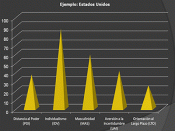"Preparing for a two year overseas assignment in Lagos, Nigeria, a U.S. business person during the 1970's submitted to no fewer than 27 shots as a protective measure against everything from yellow fever to hepatitis. Although he managed to avoid any dreaded tropical disease during his assignment, he contracted one malady for which there was no vaccination. The disease was culture shock". (Ferraro, 1998, 130)
"Critically analyse why a manager working abroad might experience culture shock and what can be done to manage or alleviate it".
From 1945 onwards, international business operations have become reality for a multitude of corporations. A profuse number of these companies' initial efforts began as simple exporting operations. Throughout this period, till present day however, international ventures have become increasingly more complex through joint ventures to purchasing existing foreign firms to 'Greenfield' undertakings.
While exporting generally requires no more than extended business trips in foreign affairs, there are numerous more complex international activities which demand long-term assignments of preferably well suited employees to execute management outside their home country.
These international sojourners have diversified roles, ranging from supervision, implementing corporate operations to transfer of technology to imparting corporate culture and strategy.
What would usually be considered 'normal' business behaviour in one country can become somewhat perplexing when mimicked in another. Upon closer scrutiny, there are vast differences between individuals and organisations from different cultures. At first glance, particular concepts appear to be universal, but in fact are the opposite in respect to "the values and assumptions of people are shaped by their culture" (Fatehi, 1996, p. 152), these cultural differences influence the international management of business organisations. These types of assignments have led to the creation of needs to prepare and support managers sent outside their home country.
It is the purpose of this paper...


